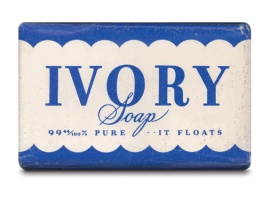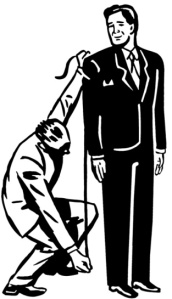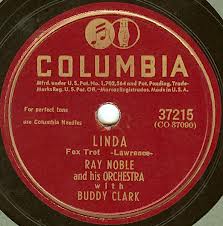Benjamin Spock’s classic The Common Sense Book of Baby and Child Care hit book shelves in 1946. Before Dr. Spock’s death, a half a century later, over fifty million copies of the book had been sold, making it the most popular book of the twentieth century in America, second to the Bible. His approach was lauded for validating parents in their use of common sense, for promoting flexibility over the more rigid approach that had previously been in vogue, and for encouraging parents to demonstrably express their affection to their children. To make the book accessible to the average household, this new parent handbook was priced at a whopping $.25 per copy.
My mom says she never had a copy of the book. She and my dad parented all five of us children without the assistance of a pediatrician-psychiatrist to affirm them in their common sense. They just went about their business, calling upon resources already at their disposal. Not that they didn’t encounter the occasional challenging situation from time to time, but for the most part, we pitched garden variety fits, engaged in garden variety sibling rivalry, and waged garden variety warfare on proscribed routines, directives and ethics.
It hadn’t previously occurred to me to comment on my folks’ methods of keeping their brood in line, but as I was musing on the most memorable events of my youngest years, one of their favored ways of impressing upon us the gravity of our misbehavior was…
Washing mouths out with soap.
Honestly, I can’t remember whether any of my siblings ever got the Ivory Treatment — I only remember the couple of times I found myself on the receiving end of this teaching stratagem. This infrequently used device was reserved for the perpetration of falsehood, duplicity, and other highly fraudulent behaviors. It could just as easily be applied when foul language or outrageous name calling came into play. I wish I could report to you just what it was that I said to warrant punishment on this order, but my selective memory has effectively blocked all recollection of any specific trespasses. Rest assured that I was guilty as charged, as my parents were quite careful to ensure that our every encounter with the Long Arm of Justice would have been duly preceded by ample instruction as to the expected, upstanding behavior.
The sudsy sentence was always executed with great dispatch. The guilty party would be escorted to the nearest sink, instructed to open his or her mouth, and a swift swipe of the soap bar across the tongue was administered. A new take on “belly up to the bar”.
I hated this punishment with a passion. Do they really think that putting that stupid soap in my mouth will stop me from thinking what I was thinking before I said what I said?!! Besides, my tongue doesn’t have any dirt on it, so washing it like dirty hands doesn’t even make any sense.
In all my childish indignance, my parents’ point was somewhat lost. Yet on some level, I think I realized that this negative consequence for children’s use of the tongue in an untoward manner was was chosen precisely for its metaphoric value, but was at the same time a highly effective deterrent. I, for one, immediately applied a neon Post-It to my brain that read: MUST NOT REPEAT THIS INCIDENT. EVER. After enduring a penalty “cleansing”, I would conscientiously eradicate lying and being ugly with my words from my agenda for a long, long while. I may have resorted to other naughty stuff, but definitely not that.
Another extremely effective tactic to curtail inappropriate behaviors, at least in dealing with my gregarious disposition, was to banish me to the bedroom during the middle of play. All the other kids would be outside whooping it up, and there I would be — imprisoned in a second floor cell with no one to talk to, be entertained by, or otherwise engage in shenanigans. I probably only spent a half hour to an hour in solitary confinement at any given time, but the duration seemed interminable. I’m sure I thoroughly contemplated my errant ways while alone and isolated, and no doubt vociferously pledged to do much better to the jailer when she came to fetch me at the end of my stint.
And finally… the dreaded paddle. My folks took one of those little light weight paddle ball paddles and removed the rubber ball and string. My dad even penned on the front of it: For Bad Burns’ Bottoms. The paddle’s assigned place was atop the refrigerator. It didn’t come down all that often, but when it did, we always knew which direct parental instruction we had violated. In all my childhood, I can only recall once when I felt I got a swat for something I didn’t understand was wrong. A commendable record on my parents’ part, all things considered.
Now lest you suspect my parents to be calloused or brutish in their methodology, bear in mind that virtually every household and classroom of the period was outfitted with a paddle. A kid could get a spanking from the principal at school and likely receive a second one for the same offense upon arriving at home. Attitudes and behaviors go in and out of fashion, and I believe the trend away from corporal punishment is a welcome one. I for one, don’t miss it, especially given the inherent potential for abuse.
But more important than the actual methods used, I suspect, are the motive and intent behind these methods. I know people who received physical abuse as children and have undergone countless hours of therapy to undo this damage. And I also know parents who would never lift so much as an aggressive pinkie finger, yet speak to their children with disdain and disrespect. Children who experience such verbal battering have the same need for assistance in overcoming debilitating feelings of unworthiness and shame. Both of these parenting modes are highly destructive and are to be eliminated from parental tool kits everywhere.
So perhaps Dr. Spock was onto something after all: use common sense in the care of babies and children. Firmly and lovingly communicate and adhere to appropriate boundaries, and generously administer affection and respect.
But maybe leave the Ivory out of the equation…?
Related articles
- Food for thought!! (pangie0505.wordpress.com)







